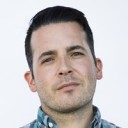‘Are you okay?’
It seems like a simple question, but it asks so much of us.
Recalling the recent tragic events in Orlando, Baghdad, Dallas, and Istanbul during the opening of the International Human Rights Funders Group conference in New York City, executive director Mona Chun asked us to reflect on how we are doing — not just collectively, but personally.
‘Are you okay?’ To answer that question requires courage.
In a paper titled ‘Mental Health Functioning in the Human Rights Field,’ a team of researchers found that nearly one in five human rights defenders meet the criteria for a Post-Traumatic Stress Disorder (PTSD) diagnosis, and another 18.8% experience symptoms of PTSD. In addition, more than one in ten had met criteria for depression.
Human rights defenders find their purpose in responding to the needs of their communities, organizations, and even funders. They don’t often stop to acknowledge and address their own needs, and as a result, their emotional and physical health is suffering. We must consider the role of philanthropy in individual and movement sustainability.
‘Are you okay?’ To share your answer requires trust.
In presenting the results of a soon-to-be-released study on the state of young feminist organizing, FRIDA| The Young Feminist Fund and the Association for Women’s Rights in Development (AWID) highlighted the most prominent themes emerging today. They found that more than half of young, feminist activists feel threatened or unsafe, and a third identified the increased backlash and hostility against feminism, as one of the biggest barriers to their work. Yet, when asked how they would prioritize addressing threats to their safety, activists put personal safety last on their list of priorities.
As funders, how often do we ask our grantee partners how they are doing? Do we make the effort to earn the trust that’s needed for them to answer honestly?
‘Are you okay?’ To listen to someone’s answer requires generosity.
In the closing plenary, Tatiana Cordero, executive director of Urgent Action Fund – Latin America, shared that self-care is crucial to individual and movement sustainability, and its different dimensions have to be done in relationship with others. She issued a call to action to funders to revise the way we think about activists as martyrs for a cause. Instead, we have to recognize their vulnerability, and the fear and exhaustion that human rights work brings into the daily lives of defenders. We need to support efforts that integrate protection, wellbeing, and self-care, such as reducing the barriers to flexible spending to allow self-care to be prioritized when needed.
Finally, we have to let activists know that we understand that rest and rejuvenation is a part of resilience. It’s okay to not be okay. And it’s okay to ask for help. Embracing our vulnerabilities is not a weakness, but rather, strengthens and sustains the human rights movement.
Luis F. Vivaldi, Program Associate at the Foundation for a Just Society.



Comments (1)
I love your lyrical refrain. And, yes, it does take courage to trust your partner/donor/assessor enough to answer it honestly. I try to remember the airline directions to "In case of emergency, put on your own oxygen mask first."